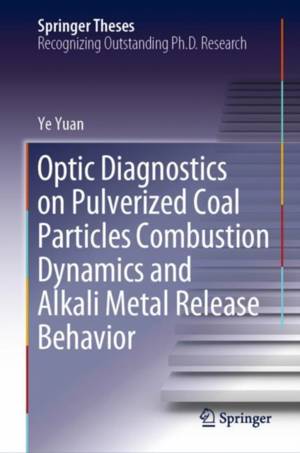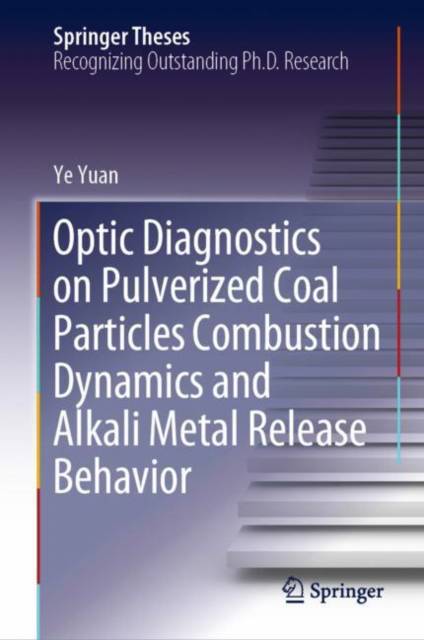
- Retrait gratuit dans votre magasin Club
- 7.000.000 titres dans notre catalogue
- Payer en toute sécurité
- Toujours un magasin près de chez vous
- Retrait gratuit dans votre magasin Club
- 7.000.0000 titres dans notre catalogue
- Payer en toute sécurité
- Toujours un magasin près de chez vous
Optic Diagnostics on Pulverized Coal Particles Combustion Dynamics and Alkali Metal Release Behavior
Ye YuanDescription
This book focuses on pulverized coal particle devolatilization, ignition, alkali metal release behavior, and burnout temperature using several novel optic diagnostic methods on a Hencken multi-flat flame burner. Firstly, it presents a novel multi-filter technique to detect the CH* signal during coal ignition, which can be used to characterize the volatile release and reaction process. It then offers observations on the prevalent transition from heterogeneous ignition to hetero-homogeneous ignition due to ambient temperature based on visible light signal diagnostics. By utilizing the gap between the excitation energies of the gas and particle phases, a new low-intensity laser-induced breakdown spectroscopy (PS-LIBS) is developed to identify the presence of sodium in the particle or gas phase along the combustion process. For the first time, the in-situ verification of the gas phase Na release accompanying coal devolatilization is fulfilled when the ambient temperature is high enough. In fact, particle temperature plays a vital role in the coal burnout process and ash particle formation. The last part of the book uses RGB color pyrometry and the CBK model to study the char particle temperature on a Hencken burner. It offers readers valuable information on the technique of coal ignition and combustion diagnostics as well as coal combustion characteristics.
Spécifications
Parties prenantes
- Auteur(s) :
- Editeur:
Contenu
- Nombre de pages :
- 151
- Langue:
- Anglais
- Collection :
Caractéristiques
- EAN:
- 9789811048128
- Date de parution :
- 01-03-19
- Format:
- Livre relié
- Format numérique:
- Genaaid
- Dimensions :
- 156 mm x 234 mm
- Poids :
- 426 g

Les avis
Nous publions uniquement les avis qui respectent les conditions requises. Consultez nos conditions pour les avis.






